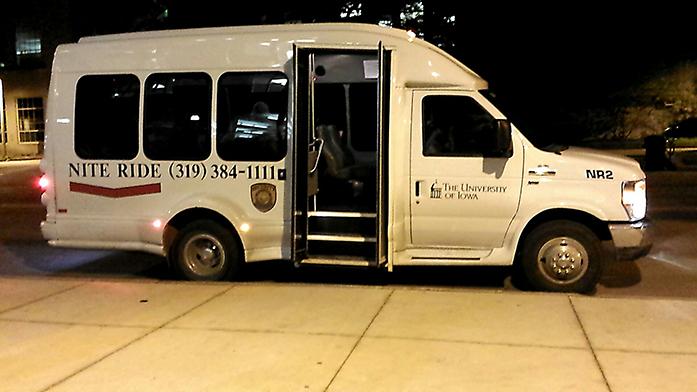Hannah Soyer
Nite Ride, a service originally intended to provide safe transportation for women in the evening and night hours (10 p.m.-6 a.m.), has expanded to service people of all genders. It also, this past year, purchased a second bus, so that there will be two buses running each night instead of one.
Although the inclusion of all genders in the Nite Ride service has generally been lauded as a positive change, there are still some concerns that this will make it easier for women to be stalked or harassed by a person they are trying to get away from. I see both sides to this argument, and I don’t know what the solution is. I do feel, however, that the opening up to include all people is definitely a step in the right direction.
Unfortunately, though, Nite Ride still does not include all people. Neither of the buses are wheelchair accessible, thus excluding those with disabilities.
On the Nite Ride website, it mentions a few different “accommodations” for people with disabilities who would like to access its service. The main accommodation noted is that the Nite Ride driver will stay with whoever has requested the service until a patrol officer has arrived. The website also noted the existence of Bionic Bus and the Accessible Fixed Route Service, both provided through Cambus.
However, the Bionic Bus, a wheelchair-accessible bus service provided solely for students, faculty, and staff of the University of Iowa with disabilities, generally has to be scheduled well in advance. I know this because I am a user of the Bionic Bus. The Bionic Bus also generally stops running around midnight, covering far fewer hours than Nite Ride offers. The other alternative that the Nite Ride website offers is the Accessible Fixed Route Service, which refers to the normal Cambus routes, which all use buses that are wheelchair-accessible. And while it is nice that these services do exist, they do not fill the role that Nite Ride is supposed to fill: a last-minute pickup for people who feel they may be in danger in the late hours of the night.
The Nite Ride website also says that if a caller has a disability, the Nite Ride driver will stay with this person until a patrol officer is called. However, I am curious to know what this entails. Is a patrol officer Iowa City or University of Iowa police? What if the person who is calling Nite Ride doesn’t want the police to be involved? A key element of supporting those who may be in danger from stalkers or harassment is allowing the choice of whether they want to report an incident to the police. This choice is allowed for those students using Nite Ride without disabilities, but it should also be afforded to those with disabilities.
I understand that there are barriers to making this service more accessible for people with disabilities, but it is also something that needs to be investigated, regardless of how much it will cost. Perhaps, the Bionic Bus should set aside one of its wheelchair-accessible vehicles from the hours of 10 p.m.-6 a.m. to be used by Nite Ride. Nite Ride would then have three buses, one of which could be available to all students.
People with disabilities are at a much higher risk of being abused because they are often seen as unable to defend themselves (which, they often are) and are often in vulnerable positions. And then of course, Nite Ride should be a service that is available for all students, regardless of their ability.



